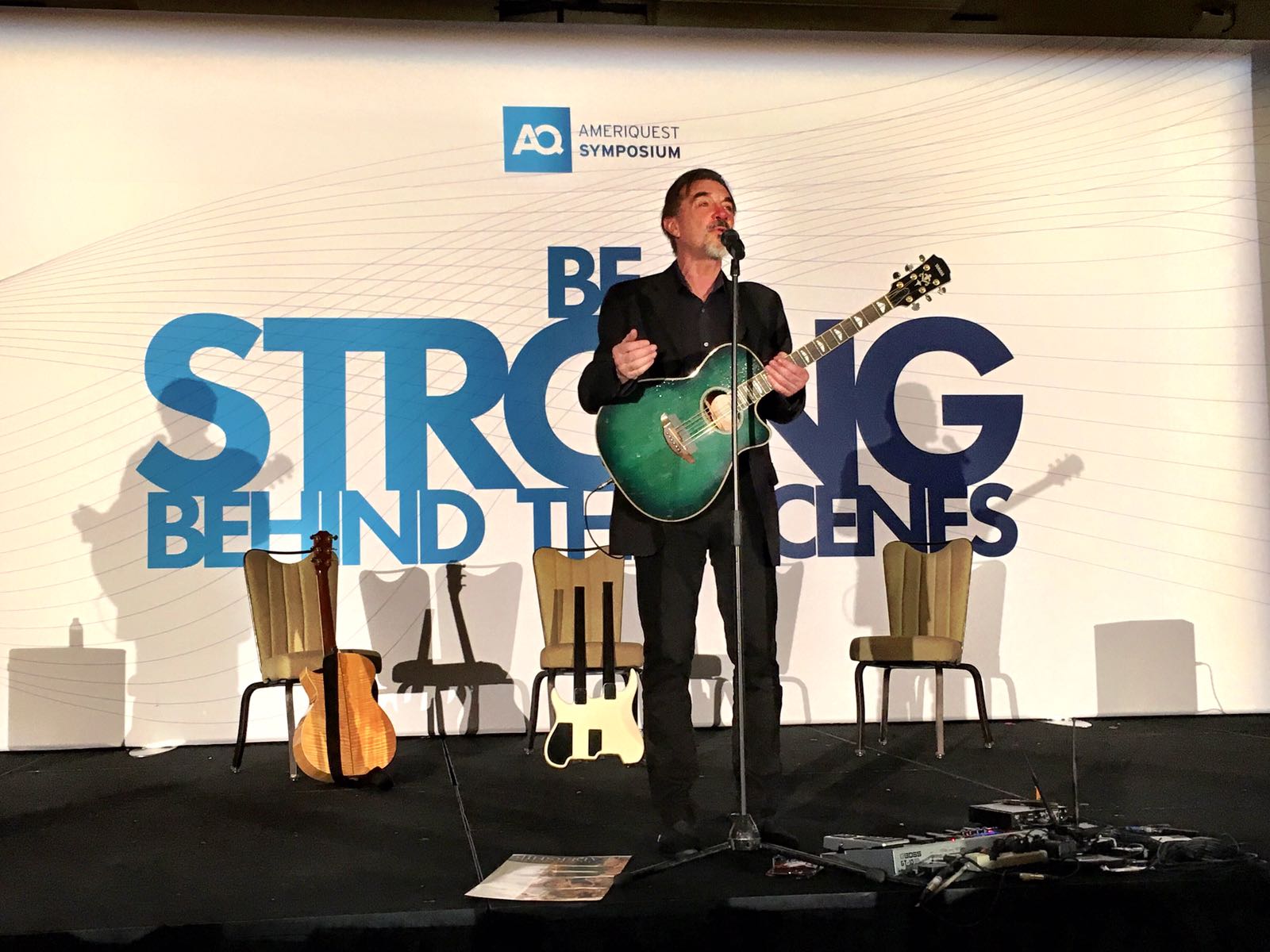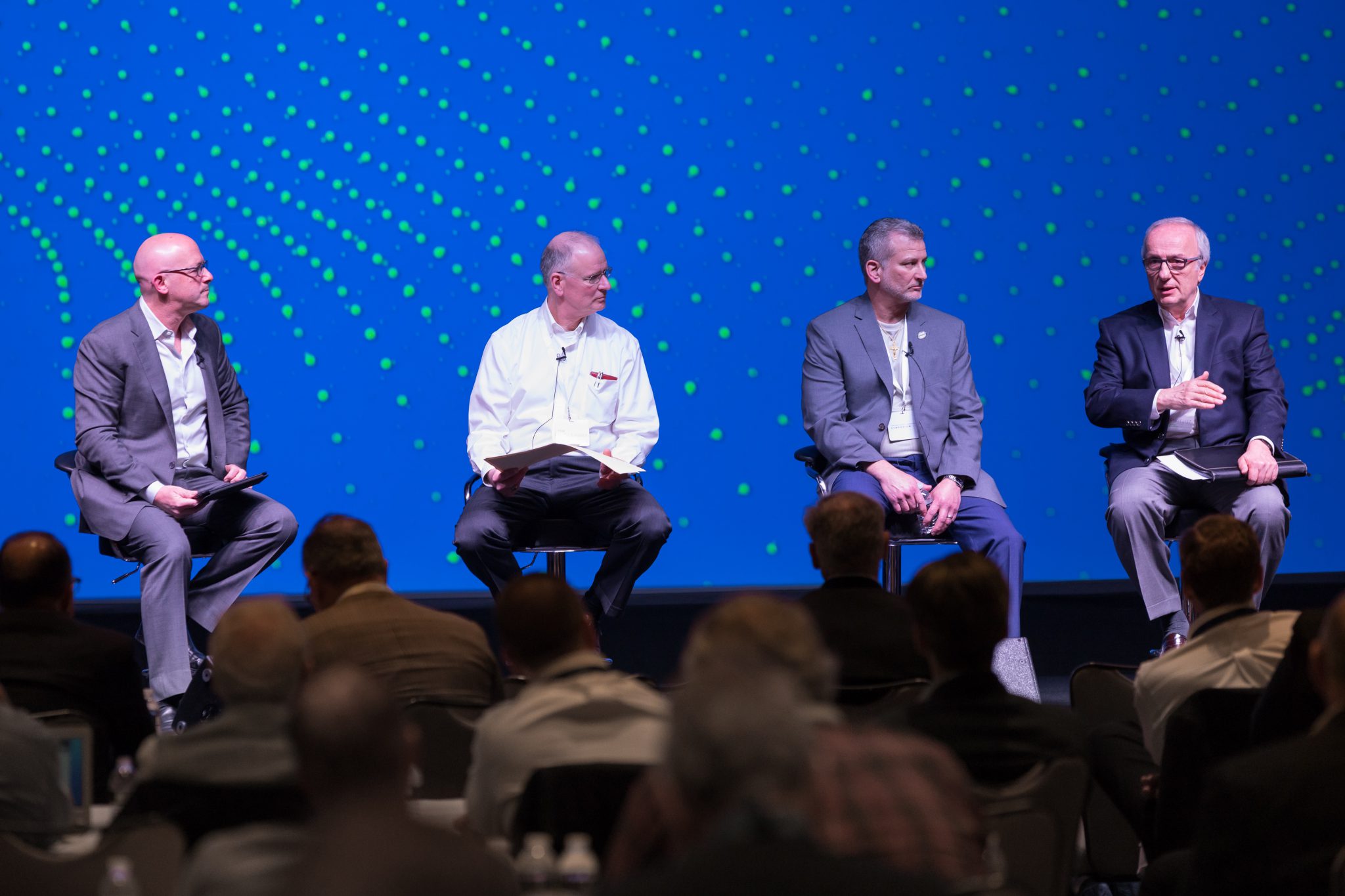Who would have thought that a technology initially developed to deal with cryptocurrency would eventually receive acceptance from a wide swath of business and finance?
Earlier this month, the AmeriQuest + Corcentric Symposium in Orlando welcomed a number of influential speakers, including Patrick Schwerdtfeger, a strategic business consultant and futurist, author, and speaker for Bloomberg TV. He specializes in technology trends including big data, artificial intelligence, Fintech and blockchain, making him a very relevant speaker in a business world that is changing at lightning speed.
Schwerdtfeger began by discussing how quickly technology is advancing and changing the way we all think, communicate, and do business. This brings us to blockchain – a technology this is gaining acceptance and traction in the business world. First developed and built as a way to record the use of cryptocurrency, blockchain is now used in businesses from banking to real estate and throughout the supply chain. Basically, blockchain is a distributed open ledger which resides in many places simultaneously and allows information to be distributed, but not copied by, a wide range of computers or “nodes.”
It is, for all intents and purposes, a chain of blocks where each block is essentially an individual record of some action taken. Every time a new block is added, the newest block includes a summary of what is on existing blocks, so what happened in the past can’t be changed. That new block is then cryptographically locked and date and time stamped. All nodes have to agree all versions of the ledger are the same, making it difficult to hack, be tampered with, or removed.
What this technology actually does, according to Schwerdtfeger, is automate trust, something that is sorely lacking in today’s world. We’ve all either personally or in our businesses been affected by hacks and data breaches…or at least we know someone who has suffered through this 21st century technological “crime spree.” But blockchain, with its security inherent in the fact that every stakeholder sees every action at the same time and can follow the history of the original contract, trade, etc., removes the fear of hackers that dominates our lives today.
As I indicated earlier, supply chain management is an early proponent and user of blockchain. All participants are on a blockchain so all have to look at the contract and agree to it…buyers, sellers, contractors, sub-contractors, and brokers alike. This is a new way of accounting for transactions of all kinds within this decentralized platform. And because no one entity has total control over the information, power becomes shared by all…and needs to be agreed to by all.
Schwerdtfeger noted that disruptive innovation comes from the fringe or the sides and invalidates existing business models. Blockchain was developed for a disruptive form of currency which could invalidate traditional banking and currency exchange models. But as he also notes, the only thing that is truly disruptive is customer acceptance.
Bitcoin and other cryptocurrencies are still experiencing a lack of trust from both businesses and people; however, the technology created to make its trading possible has gained customer acceptance. In a world besieged by doubt (whether it’s claims of fake news or malware or a host of other issues) a technology centered in trust is certain to be welcomed.




